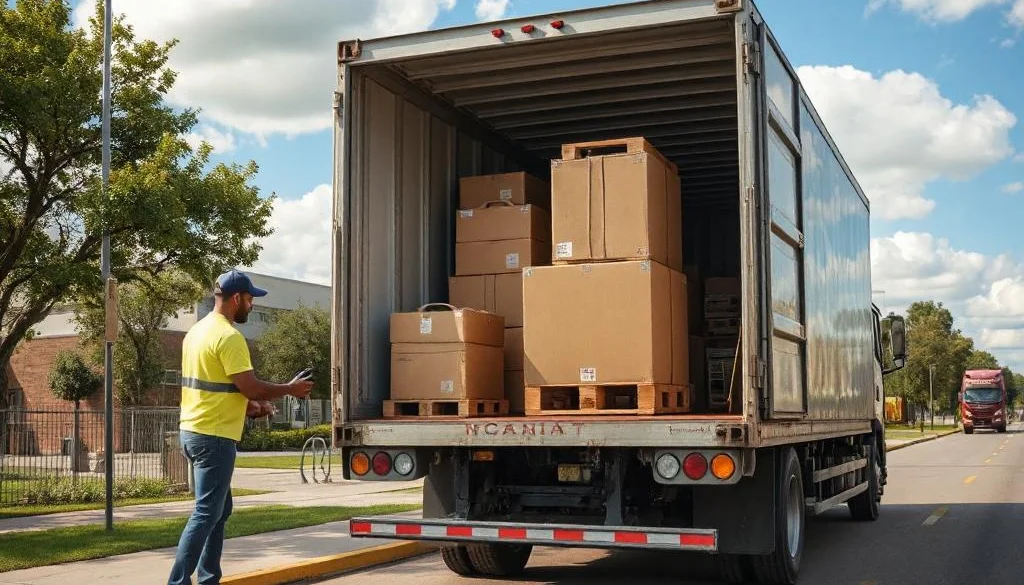
The Importance of Sustainable Packaging in Food Logistics
Sustainable packaging in food logistics is becoming increasingly essential for reducing environmental impact and maintaining product integrity. By incorporating eco-friendly food packaging, businesses can ensure product safety while aligning with green logistics solutions. This strategy not only supports sustainability but also enhances brand reputation and customer trust. Moreover, adopting sustainable practices in packaging helps companies comply with international regulations on waste reduction, ensuring they stay competitive in global markets.
Why Sustainable Packaging Matters in Food Logistics
Sustainable packaging in food logistics reduces environmental impact while maintaining product freshness and safety. Moreover, it plays a vital role in meeting consumer expectations for sustainable food transportation, ultimately promoting long-term business growth. In addition, sustainable packaging innovations often lead to cost savings through reduced material use and improved efficiency in logistics operations. Consequently, companies can achieve both economic and ecological benefits.
Eco-Friendly Packaging Materials for Food Logistics
- Biodegradable Plastics
These materials break down naturally without leaving harmful residues, making them ideal for reducing waste. - Recyclable Paper
Lightweight and sustainable, recyclable paper provides a practical solution for many food packaging needs. - Plant-Based Films
Plant-based films offer flexibility and help preserve freshness, ensuring products arrive in excellent condition. These films are particularly effective for perishable goods, keeping them safe throughout extended supply chains. Furthermore, their compostable nature adds another layer of environmental benefit.
Benefits of Sustainable Food Packaging
- Environmental Responsibility: Eco-friendly packaging minimizes waste, supports recycling, and contributes to greener logistics practices. It also reduces greenhouse gas emissions associated with traditional packaging production. Additionally, it helps brands align with global sustainability standards.
- Product Safety: Sustainable materials maintain food integrity during transportation, preventing spoilage and contamination. This ensures higher-quality products reach the consumer. Moreover, such practices lead to fewer product recalls.
- Customer Trust: Using green logistics solutions enhances brand reputation and appeals to eco-conscious buyers. Customers are increasingly choosing brands that demonstrate a commitment to environmental responsibility. As a result, businesses can foster long-term loyalty.
Tips for Implementing Sustainable Packaging in Food Logistics
- Evaluate Packaging Requirements
Analyze product needs to select materials that balance sustainability and practicality. Furthermore, consider the transportation conditions to ensure durability. - Partner with Sustainable Suppliers
Collaborate with vendors who specialize in eco-friendly food packaging solutions. Reliable partners can help businesses innovate while maintaining cost efficiency. Moreover, they can provide insights into the latest industry trends. - Educate Stakeholders
Train employees and inform customers about the benefits of using sustainable packaging, building awareness and engagement. Providing clear instructions on disposal and recycling can further improve the packaging’s impact. Consequently, this ensures maximum participation in sustainability efforts.
Conclusion
Investing in sustainable packaging in food logistics is a crucial step toward a greener future. By adopting eco-friendly materials like biodegradable plastics and plant-based films, businesses can reduce waste, enhance product safety, and meet consumer expectations. Additionally, sustainable packaging contributes to global efforts to combat climate change and improve resource efficiency. Therefore, embracing these practices not only benefits the environment but also strengthens business resilience. Contact us today to explore innovative and sustainable packaging solutions tailored to your food logistics needs.




